Analysis of the Real Estate Market in Greater Vancouver, 2018
VerifiedAdded on 2021/11/10
|5
|391
|22
Report
AI Summary
This report provides an analysis of the real estate market in Greater Vancouver. It examines the interplay of supply and demand, illustrating how changes in these factors impact home prices. The report discusses the influence of foreign buyers, the effects of mortgage rates, and the impact of government policies such as taxes on the housing market. The analysis utilizes graphs to visualize market dynamics, including the impact of price changes and the shift in demand due to foreign investment. The report references sources from 2018 to provide context and support the analysis of the market conditions during that period. The report concludes by discussing how reductions in home prices can lead to a decrease in the supply of homes.
1 out of 5
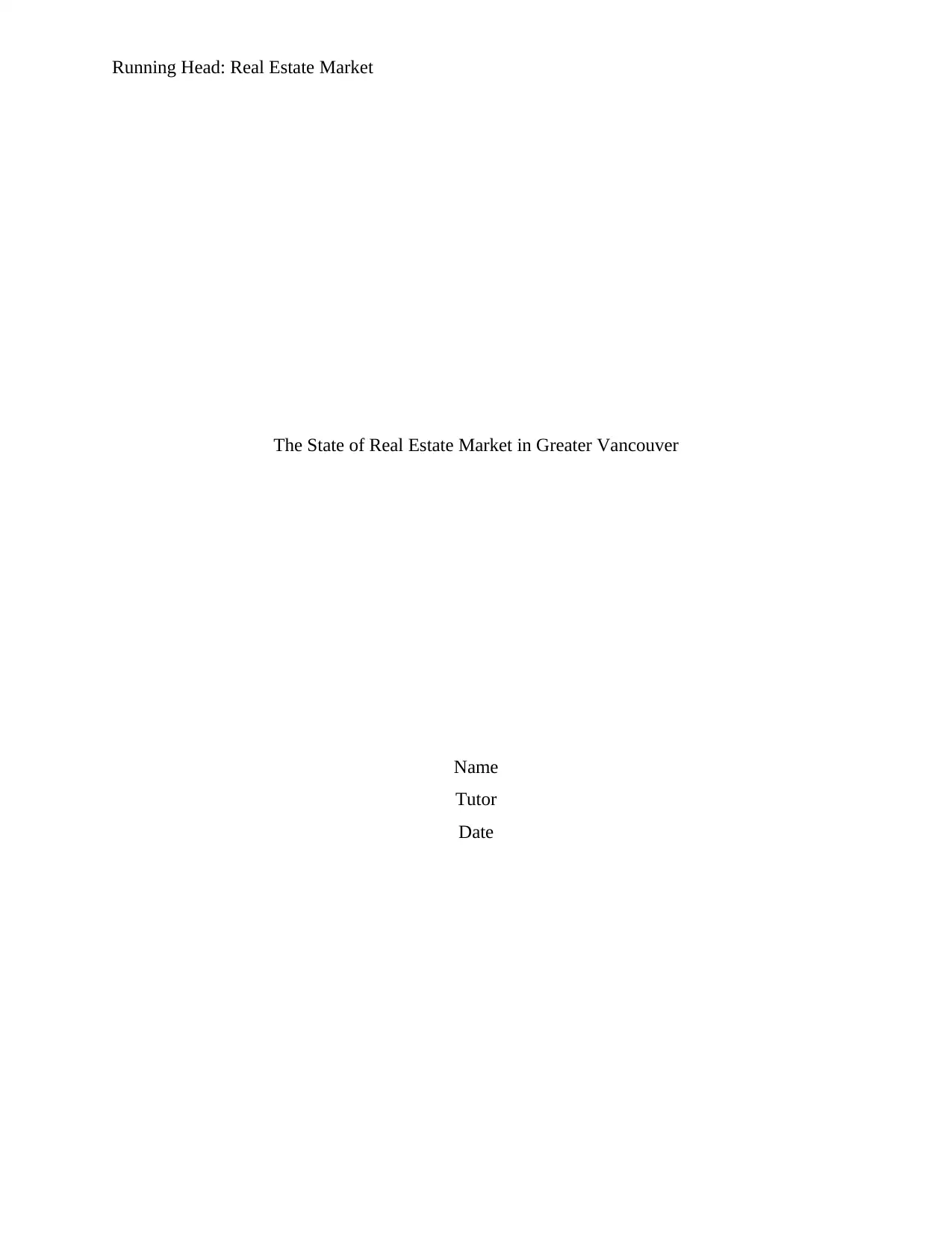
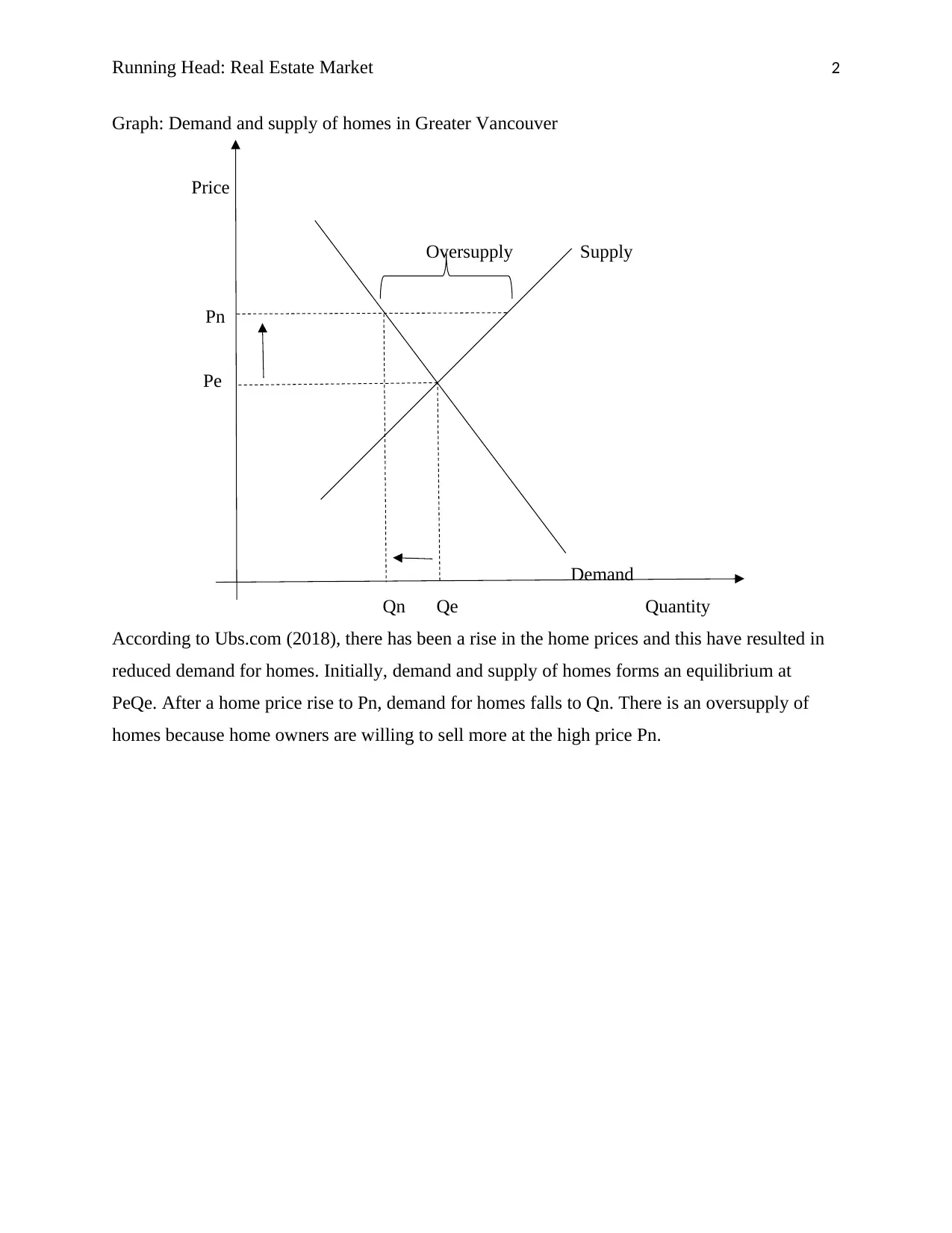
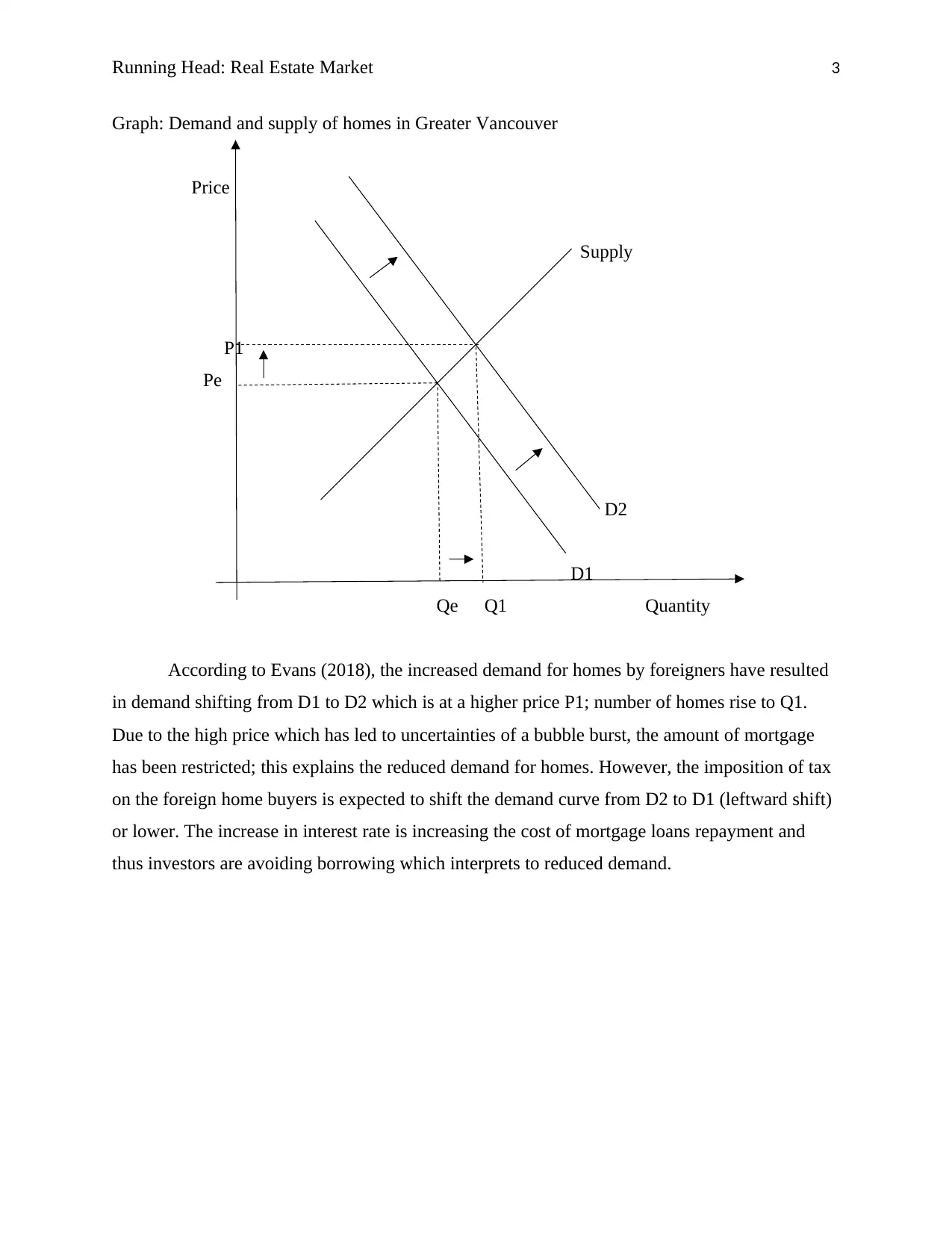

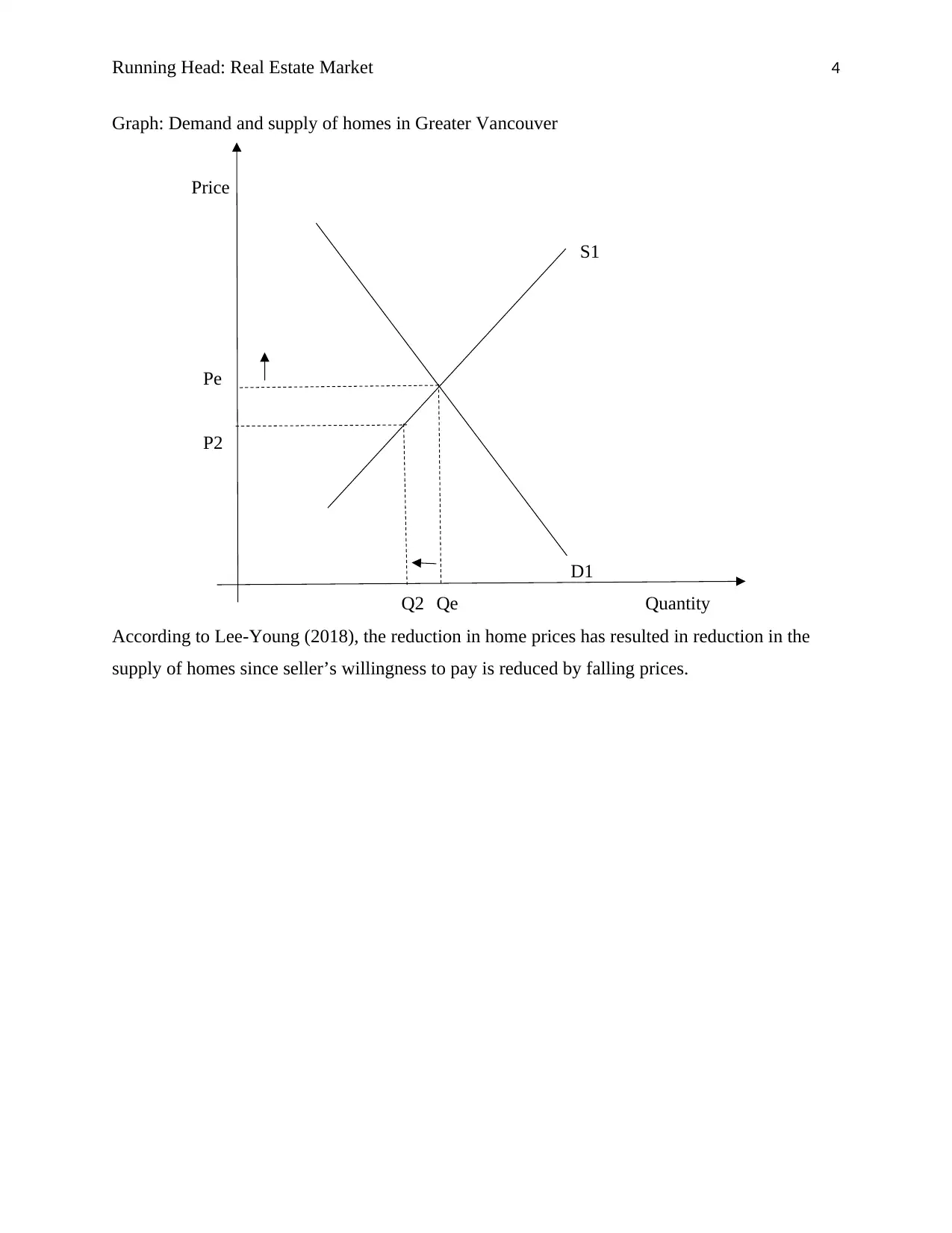
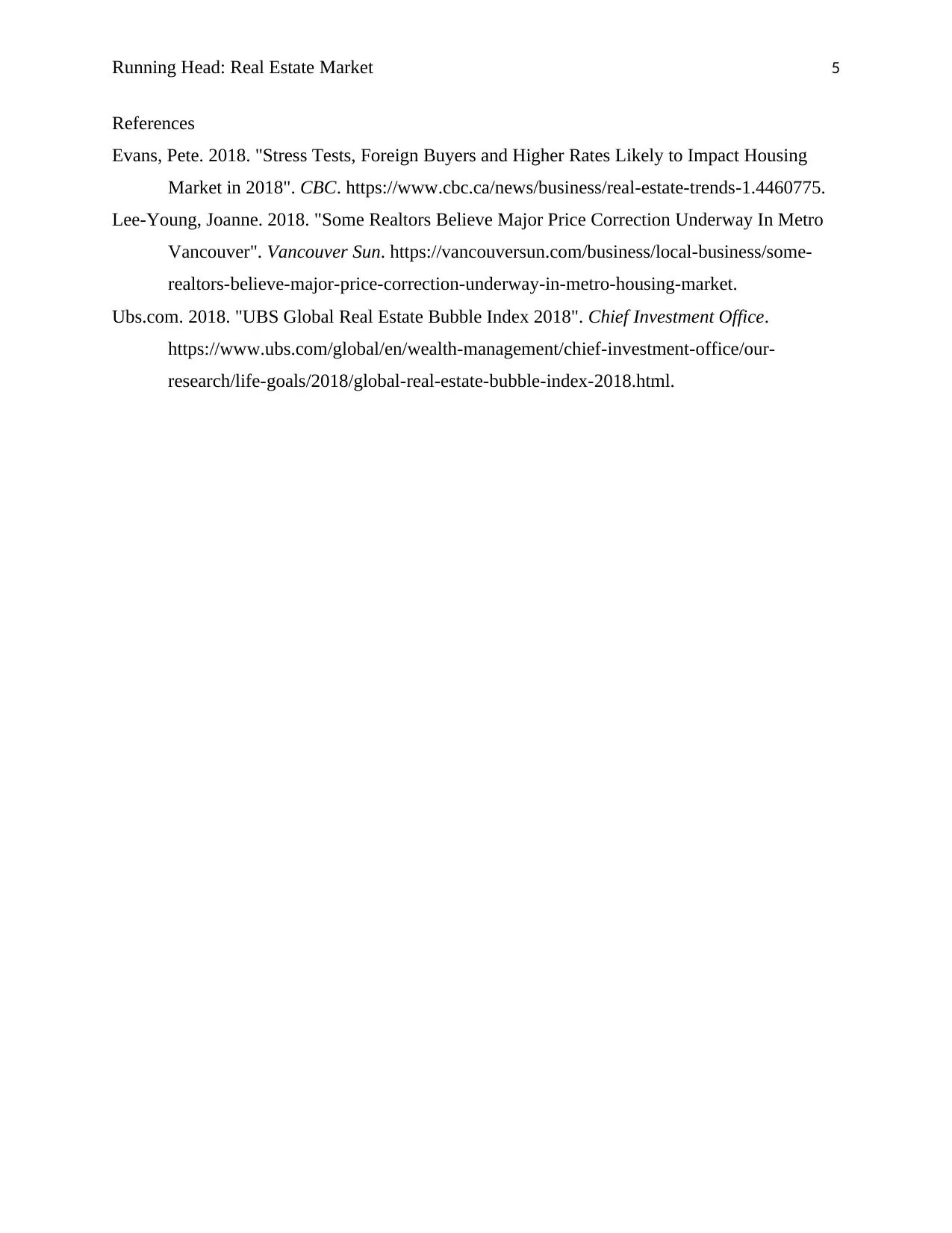

![[object Object]](/_next/static/media/star-bottom.7253800d.svg)